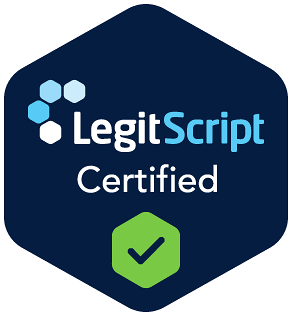Our dedication lies not just in treating symptoms but in addressing the root causes, offering a holistic approach that integrates the best of therapeutic practices with the warmth of community support.
Career and Life Skills are Essential to a Lasting Recovery

Encore Recovery understands that recovery is mediated not just by being in a qualified addiction treatment program in VA or having a great support system, but it is one that wholly depends on a person’s ability to navigate the different dimensions of life to achieve success.
Learning Life Skills in Rehab
One of the critical components of our multi-faceted approach to addiction treatment in VA is offering to teach those suffering from addiction the life skills in rehab they need to adequately reintegrate back into society. Many people, let alone addicts, are loath to admit they require guidance in the basic components of life. There are skills everyone assumes that other people have learned while growing up:
- Financial Literacy
- Academic Charting/Advising
- Career Counseling
While not the only skills a person needs to know, broadly speaking, these are the big 3 that all people struggle with at some point. For addicts, it is not uncommon to have struggled with all 3 due to how devastating the effects of a substance use disorder can be even in moderate cases. Even a “minor” alcohol problem can cause great financial strain and—for students, difficulty completing work.
Let’s unpack the importance of these 3 life skills and how they relate to recovery.
Financial Literacy – The Best Skill No One Taught You
Financial literacy is something hard to come by. There are many criticisms of the school system that operate on the basis that while there is great effort to teach students math growing up, it is far too divorced from the reality in which it is most used: managing finances.
Addiction is a tremendous drain on financial resources of both the individual, and even at times the family or friend group which may support them for a time until a breaking point is reached. This study examines the idea that by the time a person reaches treatment, there is a greater chance that they have incurred many fees, fines, and debts directly relating to or a result of their substance use disorder. This can be anything from simple financial debt to crimes a person resorted to when in the throes of their addiction.
It is a two-way street, however. A person who has generous wealth will only use it to feed their addiction, unless they become well through a program and enter recovery, this money is often fuel to a fire that should not be fueled. In other words, money is the greatest enabler, so it only makes sense to discuss how to manage it in conjunction with learning to manage a substance use disorder.
Academic Advising for Addicts
Addiction has many causes. For many addicts, their addiction is a large factor as to why they have fallen behind in school or outright have become academically suspended. This is also linked to financial literacy; wherein great student loan debt is often incurred to attend a school or academic program in which the person inevitably fails out of due to their addiction.
For many people, their substance use disorder is intricately tied into their academic history and performance. As the stress of doing well and being uncertain in their academic goals increases, so too does the desire to drink or use substances to cope with the stress and expectations.
This is not to say the least about the notoriously proliferated binge drinking and party culture across college campuses in North America.
Speaking to a counselor or advisor who truly understands your unique circumstances and struggle with addiction can help contextualize an academic plan or course in a way that makes sense for you. Hope is incredibly important in recovery, and knowing you have something to aspire to academically or professionally is key to wanting to move forward in life.
Career Counseling for Addicts
One of the major signs that someone is struggling with addiction is their inability to hold onto employment. Some people fall under the category of “high functioning addicts”—meaning their addiction does not affect their work performance. This is incredibly common in high-performance careers such as law where a significant portion of attorneys will struggle with substance use disorder at some point in their life and career.
The American Bar Association goes as far as to list information and resources on their site to help legal professionals who are struggling and to bring awareness to the issue.
Regardless, a person’s work and career are often inextricably tied to their substance use—whether it is problematic or not.
Career counseling encompasses guidance in obtaining employment, keeping it, and also navigating employment from a recovery-oriented standpoint. This means contextualizing the inevitable performance related stress of a career and how that relates to addiction, relapse, and recovery.
Finding employment and hanging onto it is a crucial aspect of wellness and recovery.
Addiction Treatment in VA
Addiction treatment and navigating these 3 listed dimensions of daily life are crucial to entering and staying in recovery. Encore Recovery can offer guidance for those who are seeking life skills in rehab through our programs as well as our life skills counseling.
Contact us today to make the first step towards a healthier, happier life.
Let Us Support You On Your Recovery Journey!
Copyright 2026 Encore Outpatient Services | All Rights Reserved



